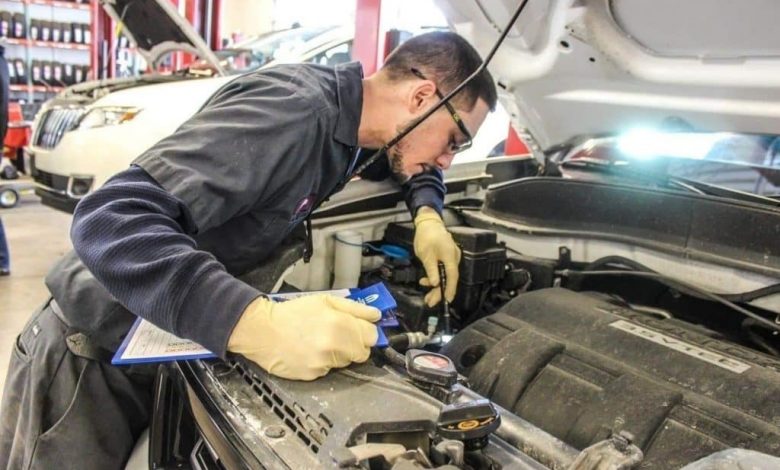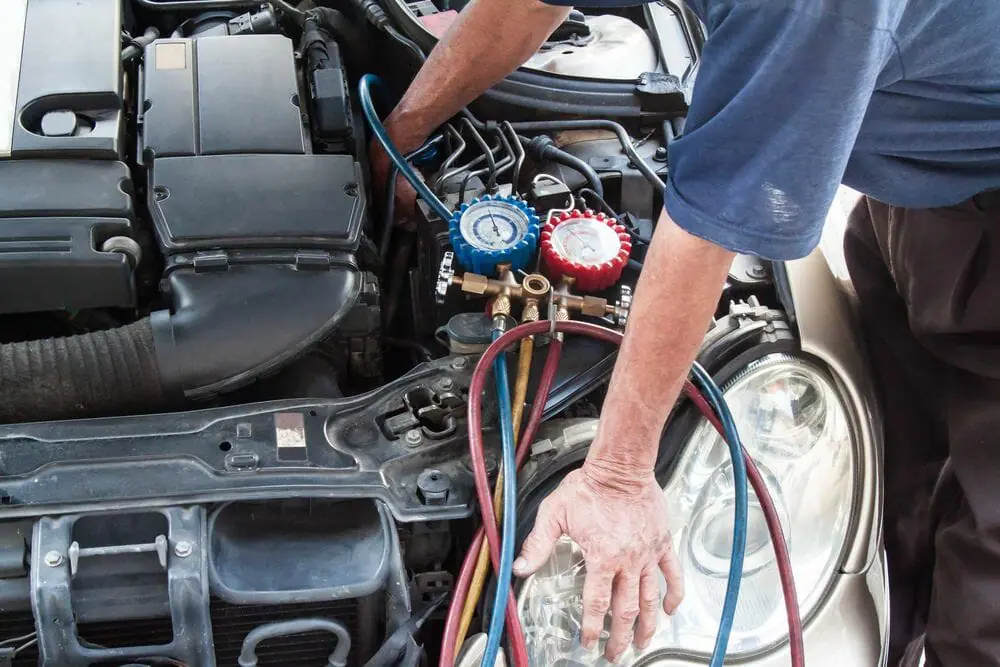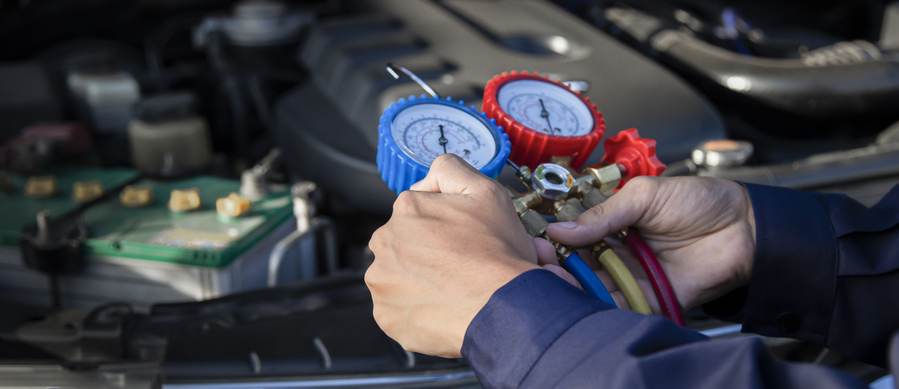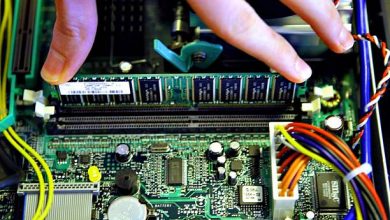How to bleed off an overcharged AC (The Ultimate Guide)

How to bleed off an overcharged AC (The Ultimate Guide): You might be tempted to buy a can of coolant, also known as refrigerant or what many refer to as Freon, and top up the system yourself if your car’s air conditioning is giving you trouble.
Read Also: How to clean a portable air conditioner (The Ultimate Guide)
Almost anywhere that sells auto supplies, including your local store, will carry cans. You can even purchase a kit with a pressure gauge to add the chemicals to your air conditioner and restart it. It is not without issues, though.
Refrigerant poses a serious risk. You don’t want to breathe it in, get it on your skin, or discharge it into the surrounding area. Because of this, it must always be contained. This creates an issue in the event that something goes wrong. Specifically, you have a major problem if you overcharge your air conditioner.
Read Also: How To Do Basic Car Maintenance For Beginners
Similar to toothpaste, once the refrigerant is out, it cannot be forced back in. That implies that you must figure out a safe technique to drain the excess refrigerant from your system if it is overcharged. That might sound simple, but it’s not quite that easy.
How do you know your AC is Overcharged?
Several indicators can be used to determine whether your air conditioner is overcharged:
1. Insufficient Cooling:
An overcharge may be the cause if your air conditioner is overcharging if the air it blows isn’t as chilly as normal or if it has trouble adequately chilling your room.
Read Also: How To Do A Basic Car Maintenance Check
2. Higher Pressure Readings:
Specialized gauges can be used by a qualified technician to assess the refrigerant pressure. Overcharging may be indicated if the pressure measurements are higher than what is advised for your system.

3. Frost Buildup:
An overabundance of refrigerant may result in frost building up on the evaporator coils or other system components, hindering normal functioning.
Read Also: How To Clean Dyson Airwrap Filter( Step by Step)
4. Unusual Noises:
As the extra refrigerant passes through the system, overcharged AC systems may make strange noises like hissing or bubbling.
5. Increased Energy Consumption
Systems that are overcharged frequently use more energy than is required for operation, which raises utility costs.
Read Also: How To Do Basic Car Painting (All You Need To Know)
How to bleed off an overcharged AC (The Ultimate Guide)
1. Safety First:
Make sure all necessary safety measures are taken before doing any work on your air conditioning system. Wearing safety equipment, such as goggles and gloves, is part of this.
Read Also: How To Get Egg Stains Off Car( All You Need To Know)
2. Determine the Issue:
Reduced cooling effectiveness, higher-than-normal pressure readings, and possible frost accumulation on the evaporator coils are signs of an overcharged air conditioning system.
3. Assemble the Required Equipment:
A manifold gauge set, a refrigerant recovery machine, and a suitable refrigerant charge cylinder are required.
Read Also: How To Do Basic Home Carpentry
4. Find Service Ports:
Become familiar with where your AC system’s high- and low-pressure service ports are located.
5. Manifold gauge connections:
Make that the manifold gauge set is properly attached to the service ports.
Read Also: How To Do Basic Car Detailing

6. Read Pressure Readings:
7. Recover Excess Refrigerant:
Use the refrigerant recovery equipment to safely remove excess refrigerant from the system. Carefully follow the manufacturer’s directions.
Read Also: How To Do Basic Car Maintenance For Women
8. Monitor Pressure:
Throughout the recovery process, keep an eye on pressure measurements to ensure they reach appropriate values.
Read Also: How To Do Basic Home Electrical Repairs
9. Disconnect Gauges:
Once the desired pressure levels have been reached, carefully disconnect the manifold gauges from their service ports.
10. Test the system:
Run the air conditioner to confirm it is working properly and effectively.
Conclusion
Learning bleed off an overcharged AC is really not quite easy but you can get it done. It can be really annoying to discover that your car’s air conditioning system is overcharged, and this can lead to some very significant issues with your car. You should definitely have access to that air conditioner when you need it if you reside in a hot region. Just keep in mind that doing this task at home alone is not a really safe option. As many potential auto repairs as you can do yourself if you have the time and the willpower, this is one that we strongly advise against doing so. Bring your car to a specialist and let them handle it securely and safely.
FAQs & Answers
1. Is bleeding off excess refrigerant something I can do myself?
While you can drain out extra refrigerant yourself, you must have the proper knowledge, skills, and equipment to do it safely and successfully. If you’re unsure, contact a skilled HVAC expert.
2. Can overcharging my air conditioner cause damage?
Overcharging can cause a variety of problems, including lower efficiency, compressor damage, and system leakage.
3. How often should I check my air conditioning system for overcharging?
Regular maintenance checks, including refrigerant level monitoring, should be performed at least once a year, or as advised by your HVAC specialist.
Bear in mind to prepare, pick the appropriate technique, as well as compensate your pet cat uromexil forte összetétele for their cooperation.




